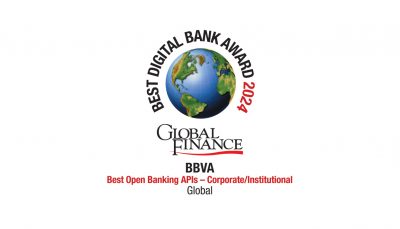Combating tax fraud
After two years of preparations, in the summer of 2017 Spain’s Tax Agency launched its Immediate Supply of Information initiative (SSI in its Spanish acronym). The platform makes it far easier to identify fraudulent practices, such as double use software, which are computer programs designed to mask sales.
José Borja Tomé, Deputy General Manager of Technologies at the Tax Agency, under Spain’s Treasury Department, explained in an article published on BBVA.com, that “once the infrastructure was in place, we realized there was much more we could use it for.”
Tomé pointed to actions such as “identifying shareholdings in companies”, which helps to unmask those who claim bankruptcy but have a series of shell companies shielding their assets. “It is now much easier to explain the sudden emergence of certain fortunes and who really owns them. The platform uses simple cross-checking analysis that renders good results.”
The next step for the Tax Agency in terms of using data, said Tomé, is to run advanced analysis that will gradually lead to the automation of certain decisions currently made by inspectors. Machines will make it easier for inspectors to detect unusual patterns.
Thanks in part to data analysis, this will not only prevent “that those who honestly pay taxes end up paying more because of fraudsters,” but also mean that “we will be among the tax agencies that cost less to taxpayers in Europe.”
Urban Discovery
This is one of the projects run by the BBVA Data & Analytics department. It is an interactive tool open to all users, running analysis of commercial activity in the cities of Madrid, Barcelona and Mexico City. The results come in the shape of new maps that redraw urban boundaries and identify the most popular tourist and residential areas, or those areas with younger consumers.
A total of 413 million card transactions over a period of one year were evaluated. This aggregated and anonymous data offers an up-to-date overview of the dynamics in these three cities.
Another strong point of the tool is how the data is displayed. Developed in partnership with CARTO, users are able to explore maps of each city, and even create their own tags to establish new divisions.
Juan Murillo, Head of Territorial Analysis at BBVA & Analytics, explains that “data science gives us a better idea of the dynamics in these cities, and allows us to examine how people use them according to their lifestyles, describing the specializations of each area, and their predominant patterns and activities.”
He also adds that the tool allows BBVA to “give users the opportunity to enhance the project with their own contributions, and we invite them to create categories that will provide a new perspective on results.”
Walmart
The U.S. retail chain, with 20,000 stores in 28 countries, is making significant use of big data. At its headquarters in Arkansas it has set up a data café, a workspace that analyzes data from more than 200 sources, both internal and external.
The tool’s greatest strength is its capacity to quickly process up to 40 petabytes of data – enough to store 542 years of high resolution video – on recent transactions. All of this data is processed and displayed with one key objective: to cut the time it takes to make the right commercial decisions. What used to take weeks can now be done in a matter of minutes.
As detailed in a BBVA article, the Walmart Data Scientist Naveen Peddamail told Forbes magazine: “If you can’t get insights until you’ve analyzed your sales for a week or a month, then you’ve lost sales within that time. If you can cut down that time to 20 or 30 minutes… That’s the real value of what we have built with the data café.”
BBVA Bconomy
Thanks to this big data solution, BBVA customers can now identify their financial safety net and improve it by controlling their expenses. Hence, customers are able to better manage their personal finances and make the decisions that are right for them.
The tool provides customers with a diagnosis of their financial health, based on the analysis of four variables: monthly savings, financial freedom, spending on housing, and spending on loans or deferred card payments. Based on the outcome of the analysis, BBVA Bconomy can suggest tailored plans to improve domestic economies.
If you want to know more about BBVA’s financial APIs,, visit this website.


























